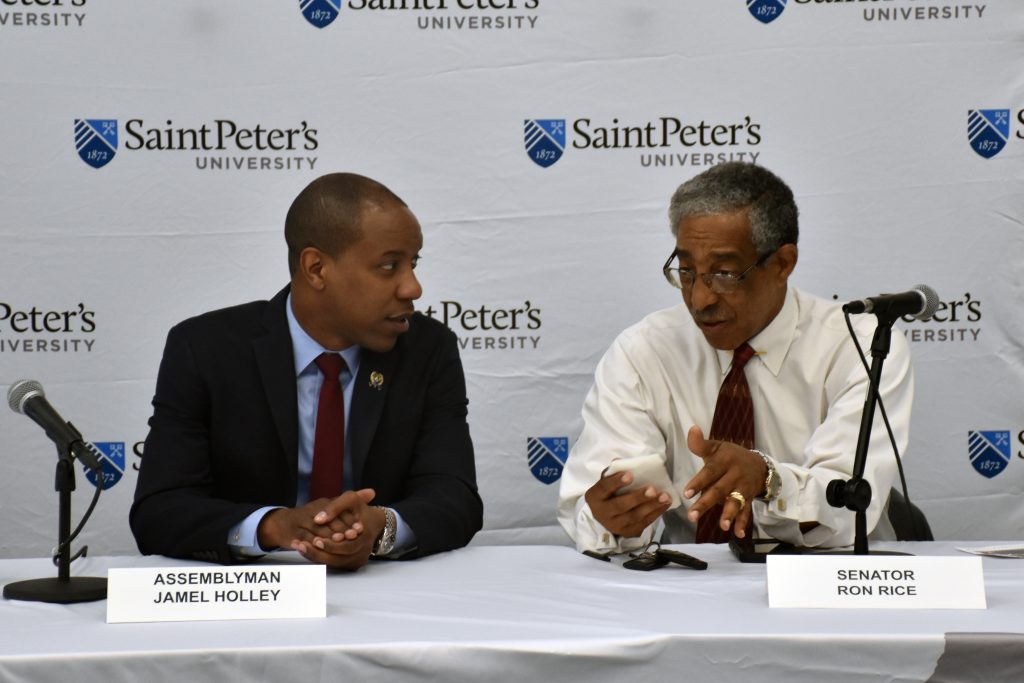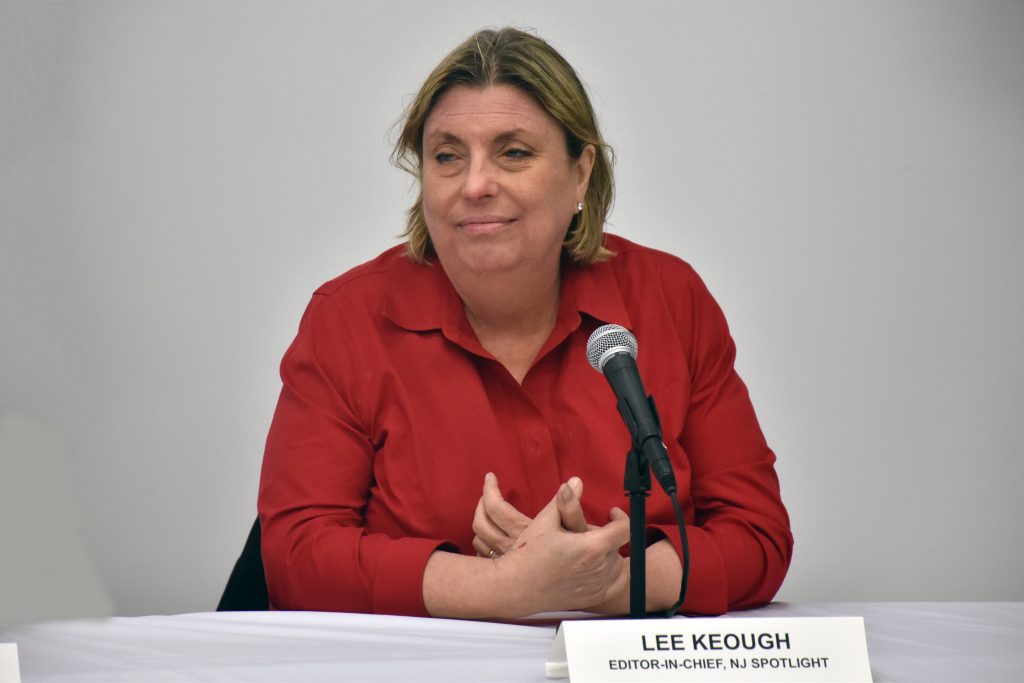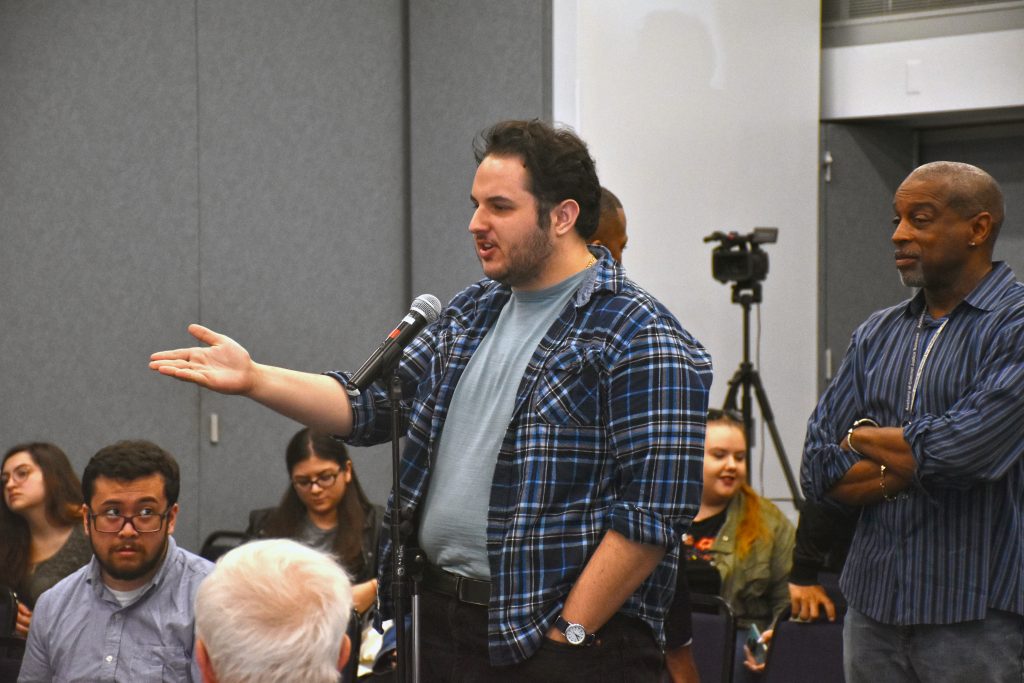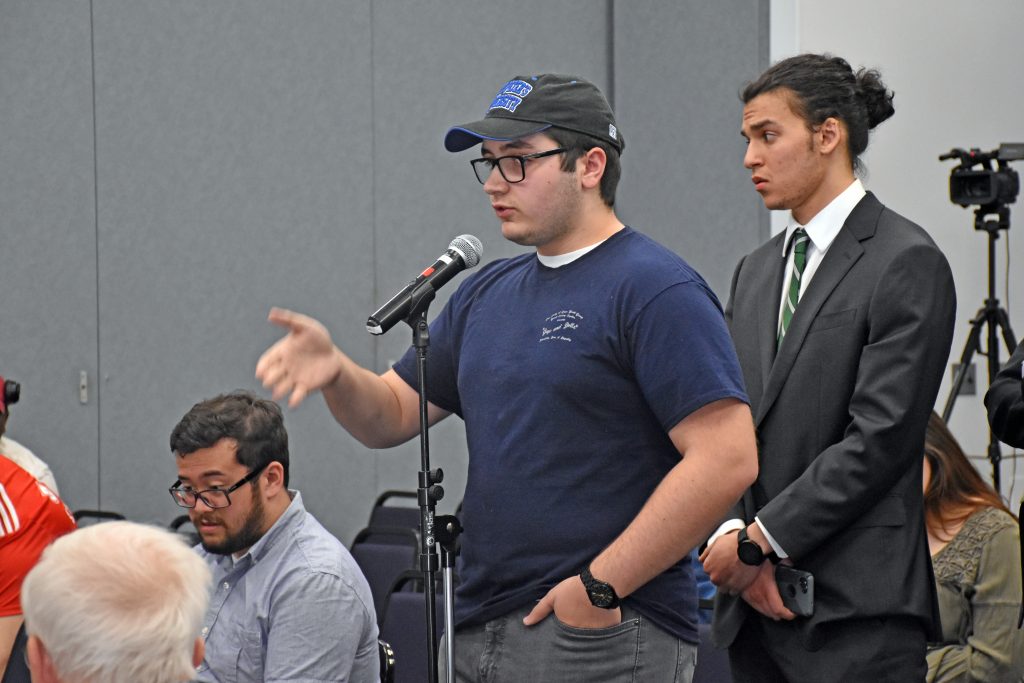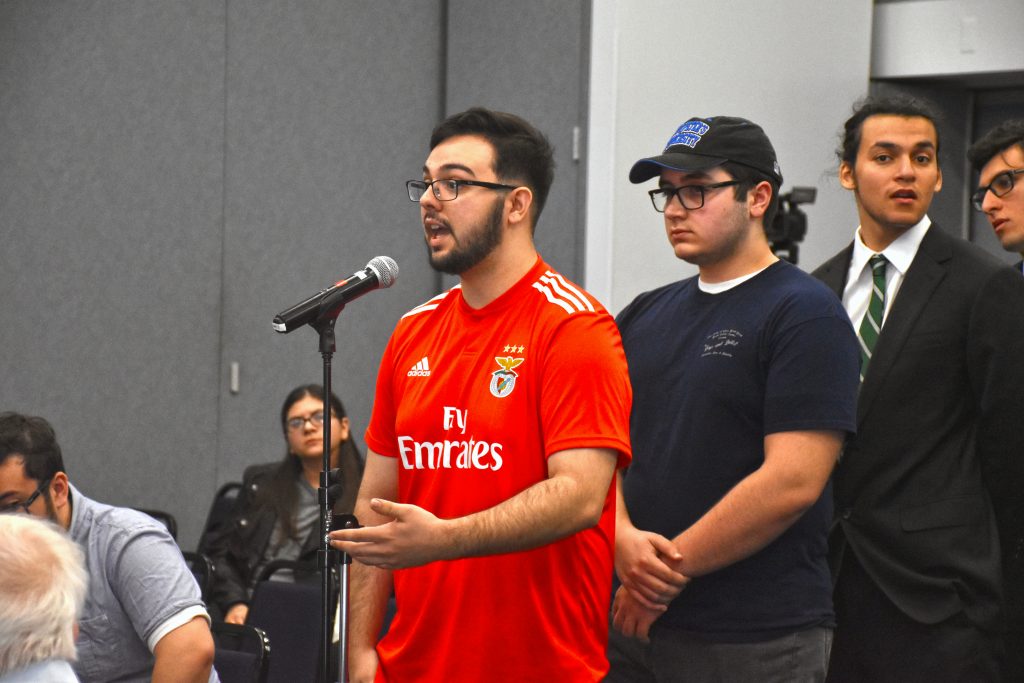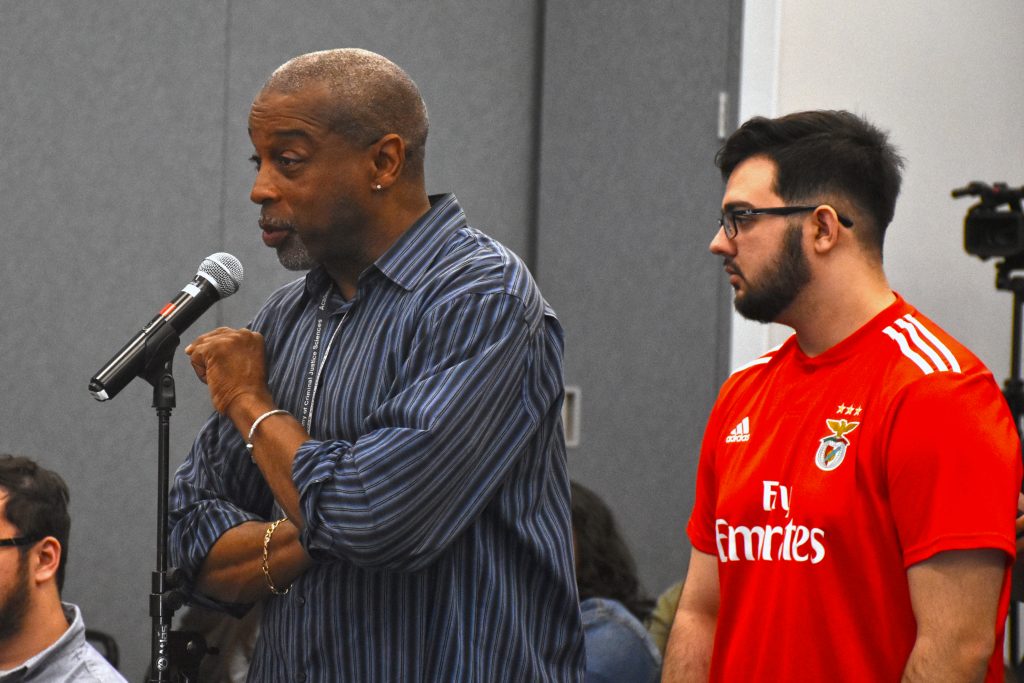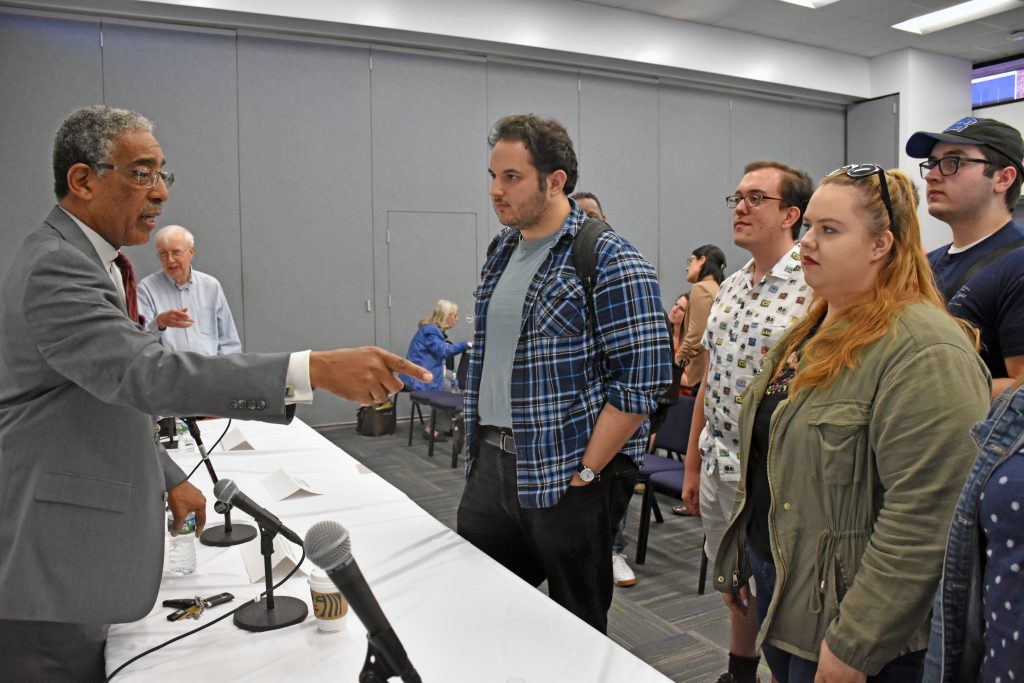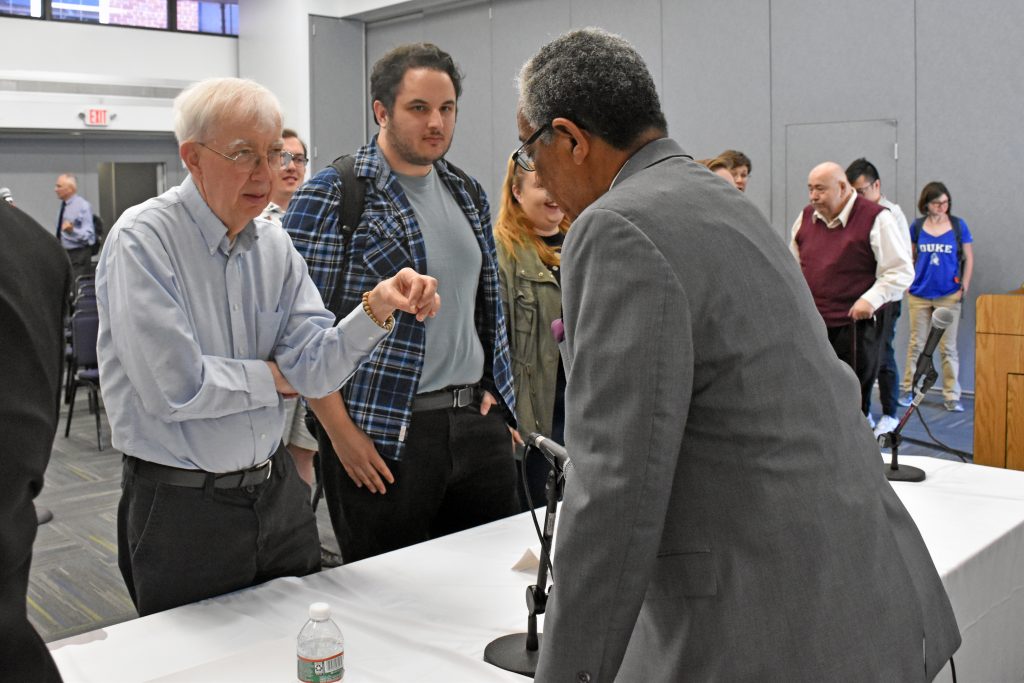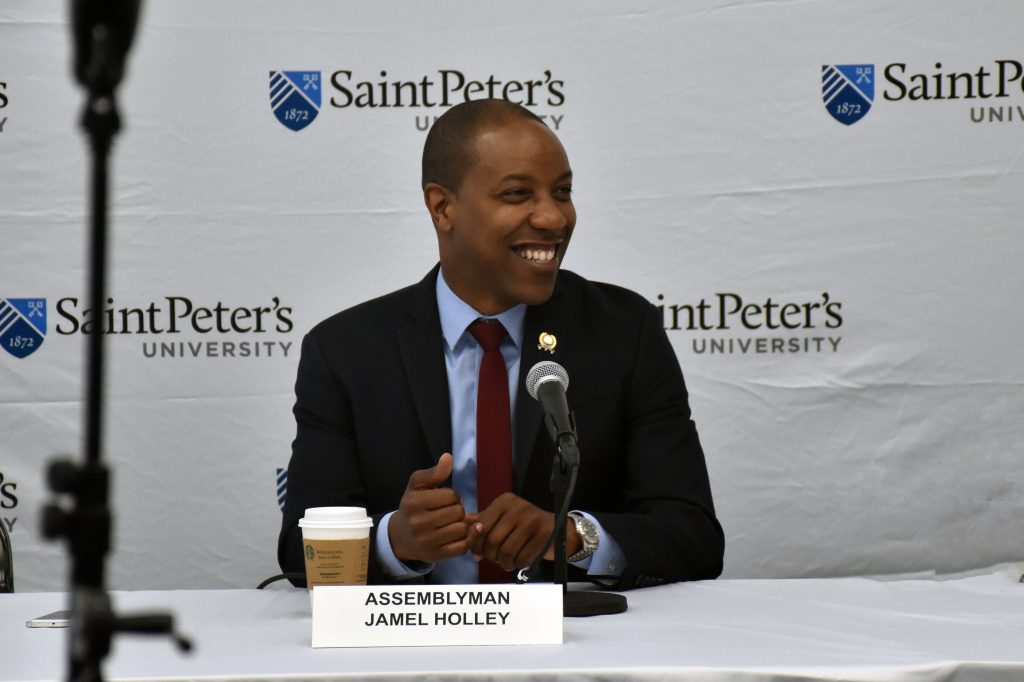
Assemblyman Jamel Holley
More than 100 guests attended “In the Weeds,” a panel discussion hosted by the Guarini Institute for Government and Leadership at Saint Peter’s University, at which local lawmakers spoke about legalizing marijuana in New Jersey. State lawmakers are considering legislation to legalize the recreational use of marijuana, expand the use of medical marijuana and expunge the records of those convicted of marijuana-related offenses. The panel discussed topics related to social justice, criminal justice, health, economic development and revenue implications of this impending change in New Jersey law. Panelists were Assemblyman Jamel Holley who was pro legalization; Senator Ron Rice, who was against legalization; and Journalist Lee Keough. The panel was moderated by Ginger Gold Schnitzer, executive director of the Guarini Institute.
To start the discussion, Holley argued for the legalization of recreational marijuana. Some of his points included, “Urban communities are consuming just as much marijuana as suburban communities, but they are the ones being punished,” “In New Jersey, 80 people per day are arrested on low level possession charges, which costs the state money” and “We know the effects of marijuana because it has been around for a long time.” A major component of Holley’s argument was expungement for those who were serving or who have served on a charge related to marijuana.
“People who have been hit by these laws can find some relief and become productive citizens,” said Holley.
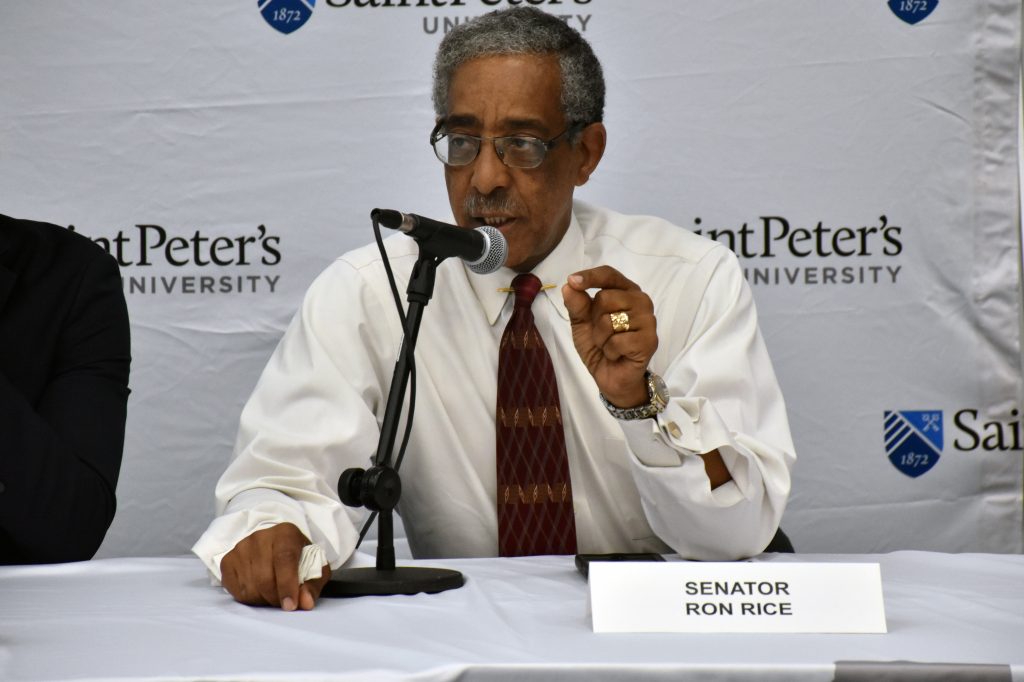
Senator Ron Rice
Rice counter argued with the following points, “There needs to be a distinction between medical and recreational use,” “The dream of expunging people on possession charges is huge and there will not be immediate relief,” and “Citizens need to look at what is foreseeable if marijuana is legalized.”
“There is a chance that if marijuana is legalized, the use of heroin and cocaine will grow, homelessness will go up, and young people will become addicted because marijuana is readily available,” Rice said. “I support the use of medical marijuana but not recreational. The bill is about money; it is not about social justice,” he said.
Keough said she spent a lot of time talking to real people, not legislators and they do not understand the real issues of legalizing marijuana.
The argument between the panelists prompted many questions. Students and professors asked about consequences of consuming marijuana and driving, how legalization affects social justice and if there are side effects from using the substance. At the end of the presentation, the room remained divided on if they agreed with legalization or not and many were still undecided.
The Guarini Institute for Government and Leadership was established in 1994 by Congressman Frank Guarini H ’94 and aims to provide a non-partisan forum for discussion of key public policy issues. The Institute sponsors lectures and programs throughout the academic year to promote critical thinking, debate and careers in public service. For more information about Guarini events, click here.


